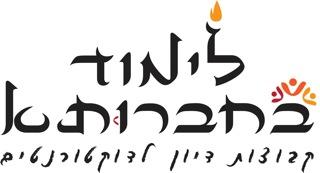Meeting 4: Seneca Reading Group, The Self and God (Ep. 41)
Seneca’s Nature and the Soul
The group examined Seneca’s analogy between nature and the divine presence, focusing on how natural environments—especially forests—evoke an inner sense of reverence. They considered Seneca’s claim that the soul, when virtuous, reflects divine qualities, aligning it with Stoic ideals.
Nature and Divinity: A New Perspective
Using Roman literary imagery, the group explored Seneca’s idea that experiencing awe in nature can lead to a recognition of the soul’s perfection. Sharon noted that this aesthetic-spiritual response can support philosophical arguments about the soul’s divine rationality.
Stoic Influence in Utilian Argument
The group reflected on the rhetorical strategy used in Seneca’s letter to persuade those outside the Stoic school. They identified Stoic concepts—like the divine soul—embedded in language that avoids doctrinal rigidity, perhaps influenced by Platonism.
Stoicism and the Higher Plane
A discussion emerged around metaphysical themes—such as the existence of a higher reality accessible even in darkness. The group emphasized that the divine can be sensed internally, paralleling philosophical traditions that transcend Stoicism.
Animus: Wisdom, Virtue, and Divinity
They examined the animus as the rational, divine core of the wise person, shaped by perfected knowledge and virtue. Sharon stressed the interdependence of the Stoic virtues and the soul’s upward striving. A reading of the text prompted reflection on divine support as the foundation of the soul’s stability.
Quotation Marks Placement Discussion
The group briefly analyzed a formatting difference in quotation mark placement between French and Latin sources. Sharon clarified where the punctuation should fall, and they agreed that the change had minimal impact on meaning.
Rhetorical Questions and Seneca’s Style
The group looked at how Seneca structured his arguments—especially rhetorical questions—and whether this aligned with his usual vocabulary and tone. They connected these elements to broader philosophical discussions, such as action at a distance and divine causality.
Seneca’s Divine Element in the Soul
The conversation turned to the divine element in the soul as a central motif in Seneca’s thought. They analyzed Seneca’s blend of Stoic and Platonic language and discussed the internalization of divinity as a move from external ritual to inner transformation.
Stoicism’s Ultimate Goal and Exemplary Figures
The group agreed that for Seneca, philosophy aims at achieving divine rationality—becoming godlike. Sharon emphasized the role of exemplars in moral formation, and the group considered who, if anyone, embodies this ideal in Seneca’s writings.
Perfect Rationality and Human Nature
They debated whether perfect rationality is a natural human goal or one obstructed by societal pressures. The discussion drew on comparisons with Rousseau and Shakespeare, highlighting the tension between philosophical ideals and lived realities.
Stoic and Cynic Philosophies Discussed
The session ended with a comparison between Stoic and Cynic philosophies. The group discussed how Stoics aim to correct the mind through rational discipline, while Cynics often treat the mind as the source of the problem. They reflected on the simplicity—and challenge—of living according to nature, a theme present in both schools. Plans were confirmed to revisit Seneca’s theology in the next session.
מפגש רביעי- הטבע והנשמה אצל סנקה
נידונה האנלוגיה של סנקה בין הטבע לנוכחות האלוהית, ותפיסת הנשמה כבעלת מידות טובות שמקנות לה אלוהיות. שיח זה התמקד גם במוטיבים ספרותיים רומיים של טבע עתיק.
הטבע והאלוהות: פרשנות מחודשת
הקבוצה הציעה קריאה חדשה לרעיון היראה בטבע כאמצעי לזיהוי שלמות הנשמה. שרון הדגישה את הערך הפילוסופי שבחוויה זו.
השפעת הסטואיזם על שכנוע חוץ-סטואי
נדון האופן שבו רעיונות סטואיים משתלבים בטקסטים שנועדו לשכנע גם מחוץ לבית המדרש הסטואי, תוך רמיזה לפילוסופיה האפלטונית.
המישור העליון בסטואיזם
הקבוצה עסקה בהשוואה בין עולם החומר לעולם המטפיזי, תוך הדגשה שנוכחות האל אינה תלויה במרחב, ומקבילה לכך קיימת גם בנשמה החכמה.
אנימוס: חכמה, מידה טובה ואלוהות
נדונה תפיסת האנימוס (הנפש השכלית) כחלק אלוהי בתוכנו, המבוסס על שלמות תבונית. שרון הדגישה את שלמות המידות כצורת ידיעה מלאה.
דיון על סימני ציטוט
התקיים דיון קצר על הבדל בעריכה בין גרסאות בצרפתית ולטינית, והוסכם כי אין לכך השפעה מהותית על משמעות הטקסט.
שאלות רטוריות וסגנון סנקה
הקבוצה ניתחה את השימוש של סנקה בשאלות רטוריות ובמונחים מתחום הפיזיקה כדי להסביר רעיונות תיאולוגיים.
היסוד האלוהי בנשמה
נדונו רעיונותיו של סנקה על האלוהי בנשמה, כולל מיזוג שפה סטואית ואפלטונית. שרון הדגישה את המעבר מדת חיצונית לאמונה פנימית.
מטרת הפילוסופיה ודמויות מופת
הקבוצה שוחחה על השאיפה לשלמות תבונית כהתכלית הפילוסופית – התקרבות לאל. נדונו גם דמויות המופת כמודלים מוסריים.
שלמות תבונית וטבע האדם
נידונה האפשרות לשלמות תבונית כאידיאל טבעי של האדם, והמכשולים שמציב לכך הסדר החברתי. הוזכרו גם רוסו ושייקספיר כהקשרים משווים.
סטואיקנים מול ציניקנים
המפגש הסתיים בהשוואה בין הפילוסופיות הסטואית והציניקנית, תוך דיון על דרכי חינוך המחשבה ומושג "הקלות" שבחיים על פי הטבע. המפגש הבא יעסוק באלוהות אצל סנקה.

